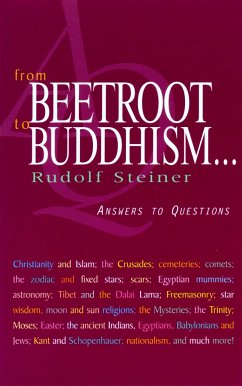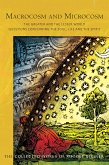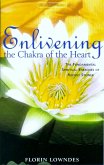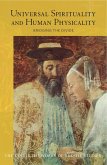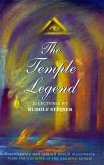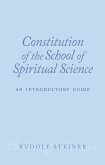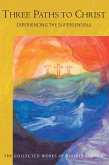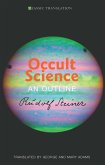In this particular collection, Rudolf Steiner deals with topics ranging from beetroot to Buddhism! He discusses, among other things, Christianity and Islam; the Crusades; cemeteries; comets; the zodiac and fixed stars; scars; Egyptian mummies; astronomy; Tibet and the Dalai Lama; Freemasonry; star wisdom, moon and sun religions; the Mysteries; the Trinity; Moses; Easter; the ancient Indians, Egyptians, Babylonians and Jews; Kant and Schopenhauer, and nationalism.
Dieser Download kann aus rechtlichen Gründen nur mit Rechnungsadresse in A, B, BG, CY, CZ, D, DK, EW, E, FIN, F, GR, H, IRL, I, LT, L, LR, M, NL, PL, P, R, S, SLO, SK ausgeliefert werden.

